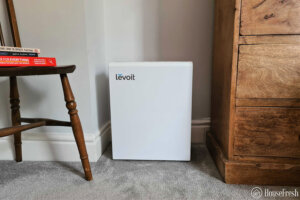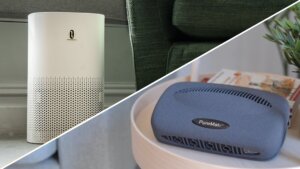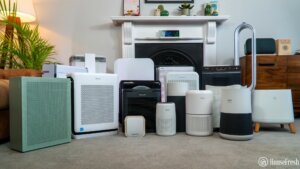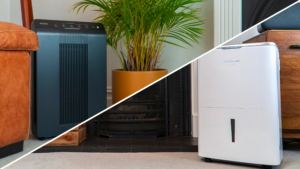A basement can be a wonderful addition to any home, whether it’s used for an extra living space, a den, or a dark place to store your unused skis and half-finished DIY projects. But unfortunately, if not maintained, it can be a breeding ground for mold, mildew, and other harmful substances.
These issues will affect your health, damage any furniture and fabrics, and can even compromise the structure of your home. Humid air can easily enter your basement under doors, through gaps around pipework and inadequate insulation. If you don’t act fast, it can become a costly headache.
Why do basements need dehumidifiers?
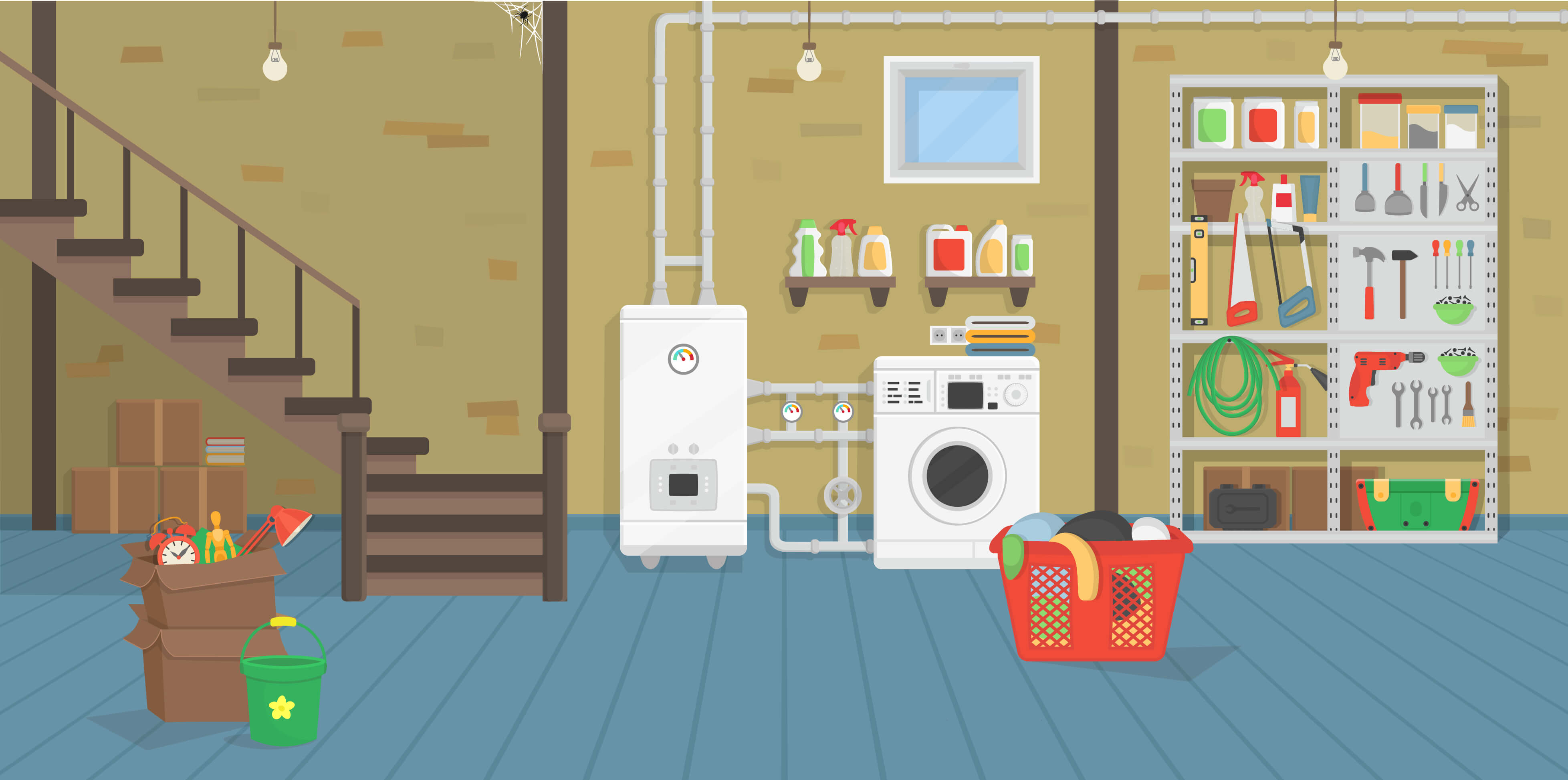
Basements need dehumidifiers as excessive moisture tends to affect these rooms more than other areas in the home.
There are a few reasons why a basement can be susceptible to damp:
- There may be moisture seeping in from the foundation
- It could be a result of water leaks or extremely high humidity levels in other areas of the home
- It may not have enough ventilation
Moisture, if left unchecked, will usually result in the growth of mold, which in turn causes structural damage to the home and health issues.
Experts recommend that relative humidity levels should remain below 50%. Anything higher than that will increase the chance of mildew and mold developing. Anything near 80%, you’ve got serious problems. Having a dehumidifier to regulate humidity will help prevent the growth of mildew and mold and protect the quality of indoor air.
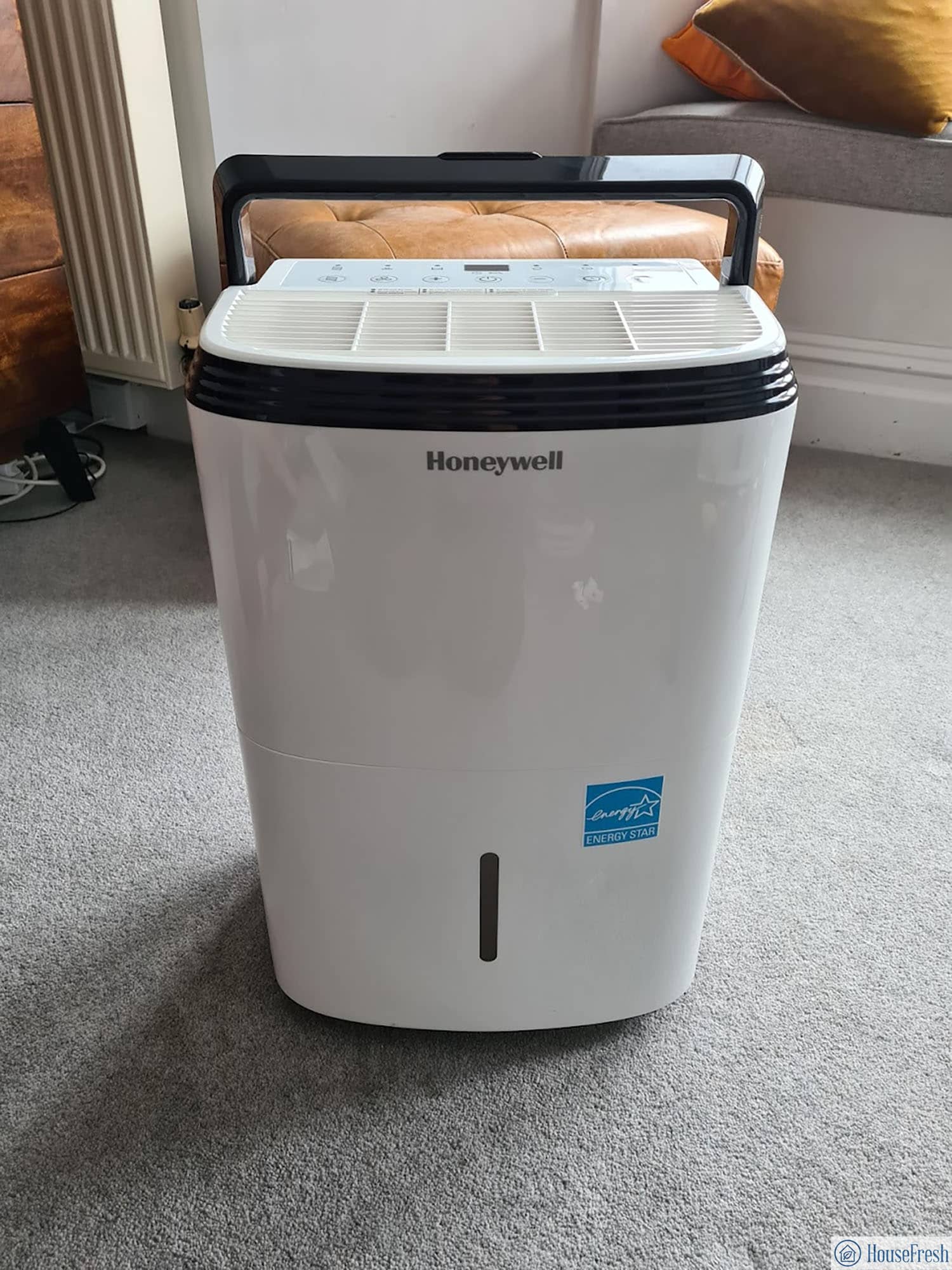
All in all, we highly recommend using a dehumidifier in your basement. They are the most cost-effective way to get rid of deep-seated moisture in basement ceilings, cabinets, floors, and walls.
Having a dehumidifier might be the best tool you can have to prevent damage due to excess moisture. It is important to note that severe water damage can cause moisture to go deeper into the material even if a surface appears dry. It typically takes weeks for moisture to evaporate, and mold and pests might have taken over by that time.
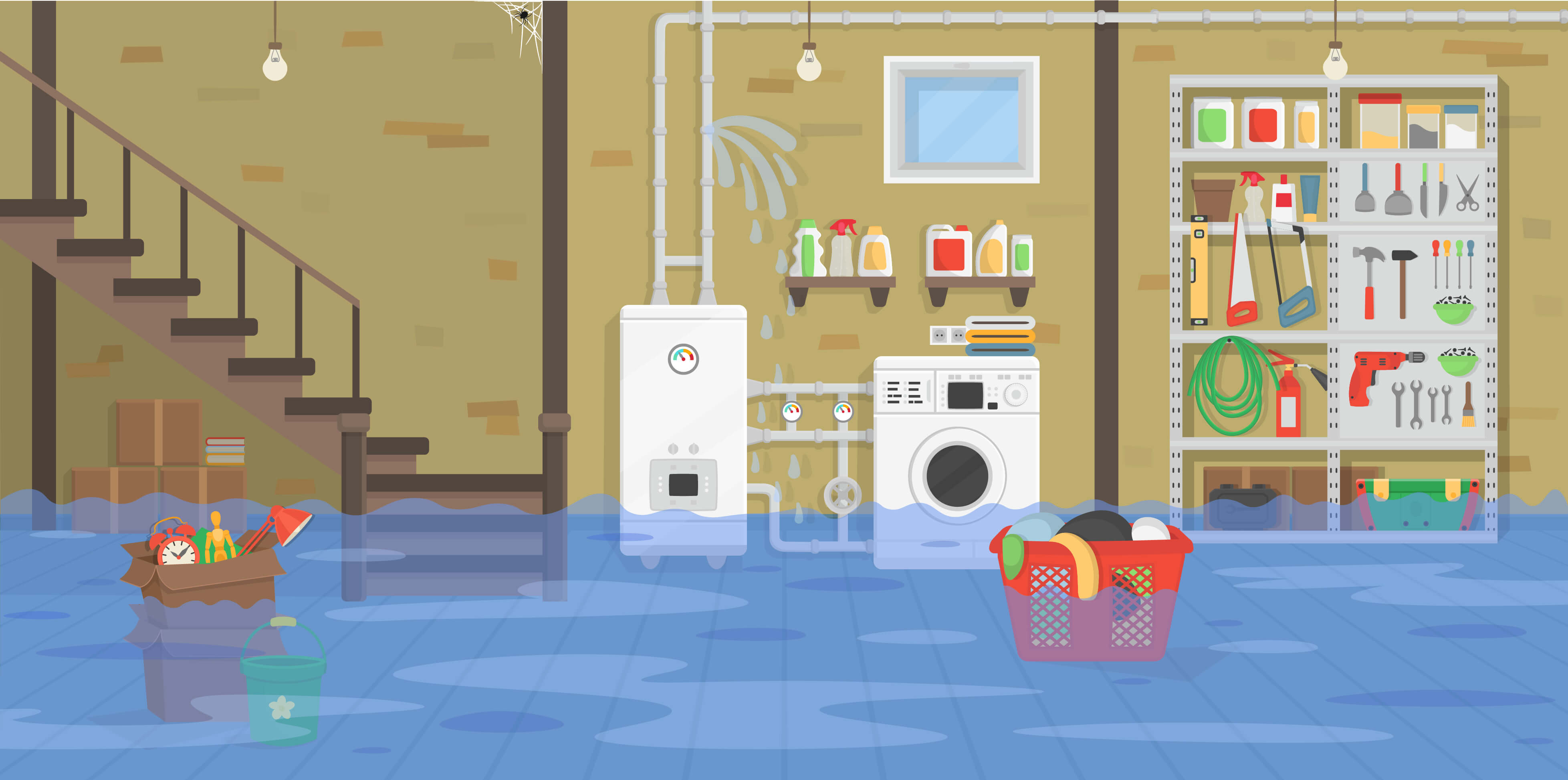
If your basement was recently flooded, the next step after evacuating the pools of water is to run a dehumidifier. You have to ensure that the dehumidifier is the right size and capacity to deal with your basement.
Many of us use our basements for storage or are left unused, typically uncleaned and unchecked for months at a time. In that time they will most likely trap moisture. Running a dehumidifier is a great way to keep on top of any prospective mold growth. Additionally, running a dehumidifier in your basement can help prevent the infestation of pests that will thrive in a basement’s dark and moist environment.
How to spot signs your basement has a humidity problem
There are various signs that your basement has a humidity problem and a dehumidifier should be introduced:
Condensation on your basement walls
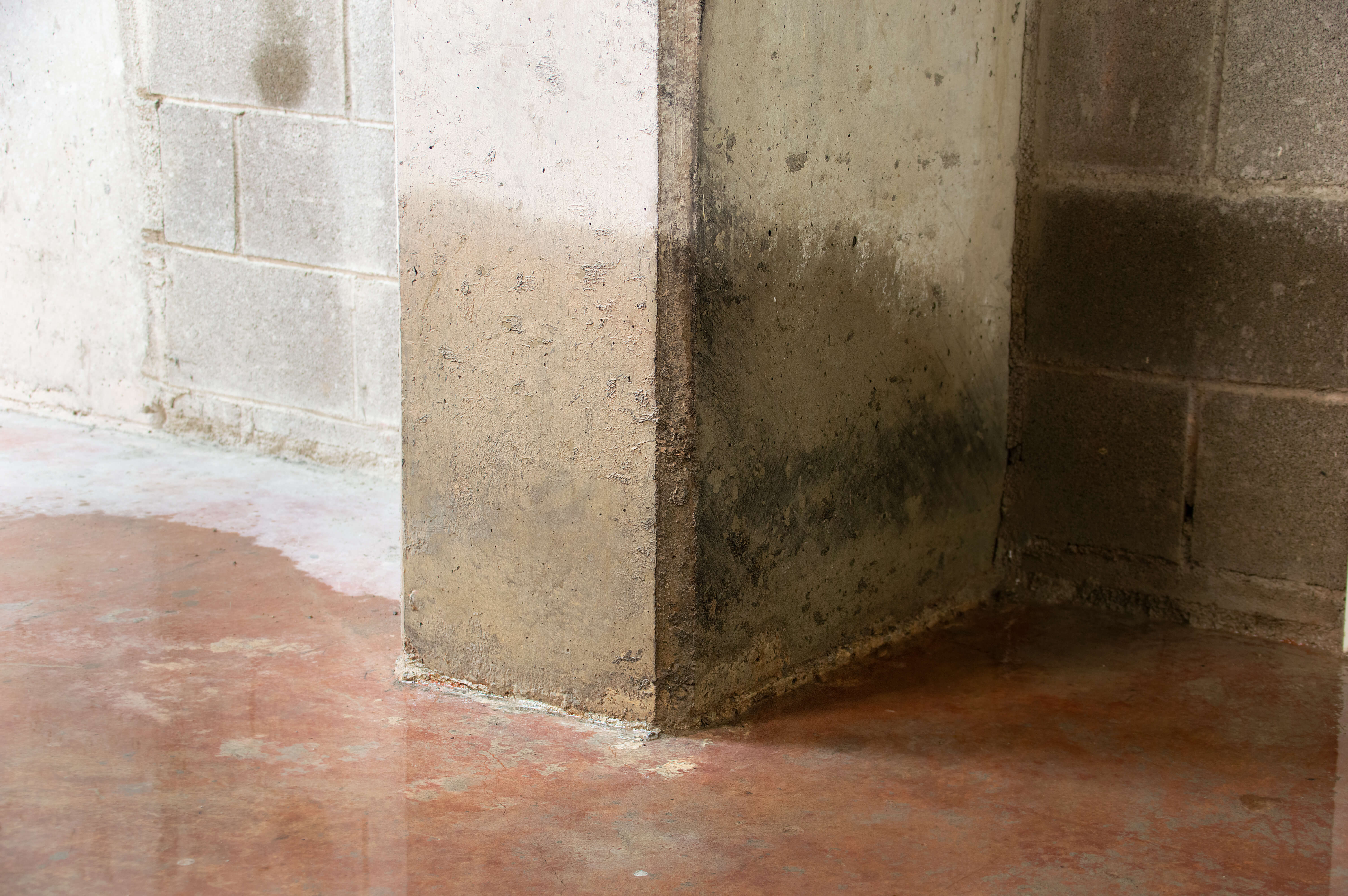
A major red flag to see if your basement has a humidity issue is to touch the walls. If your walls feel damp, then there could be condensation. Be sure also to check the basement window if you have one for any build-up of mist. This is a tell-tale sign of high humidity. Remember that dampness is typically more common in the fall and spring seasons, so be on guard.
If your basement has a weird smell
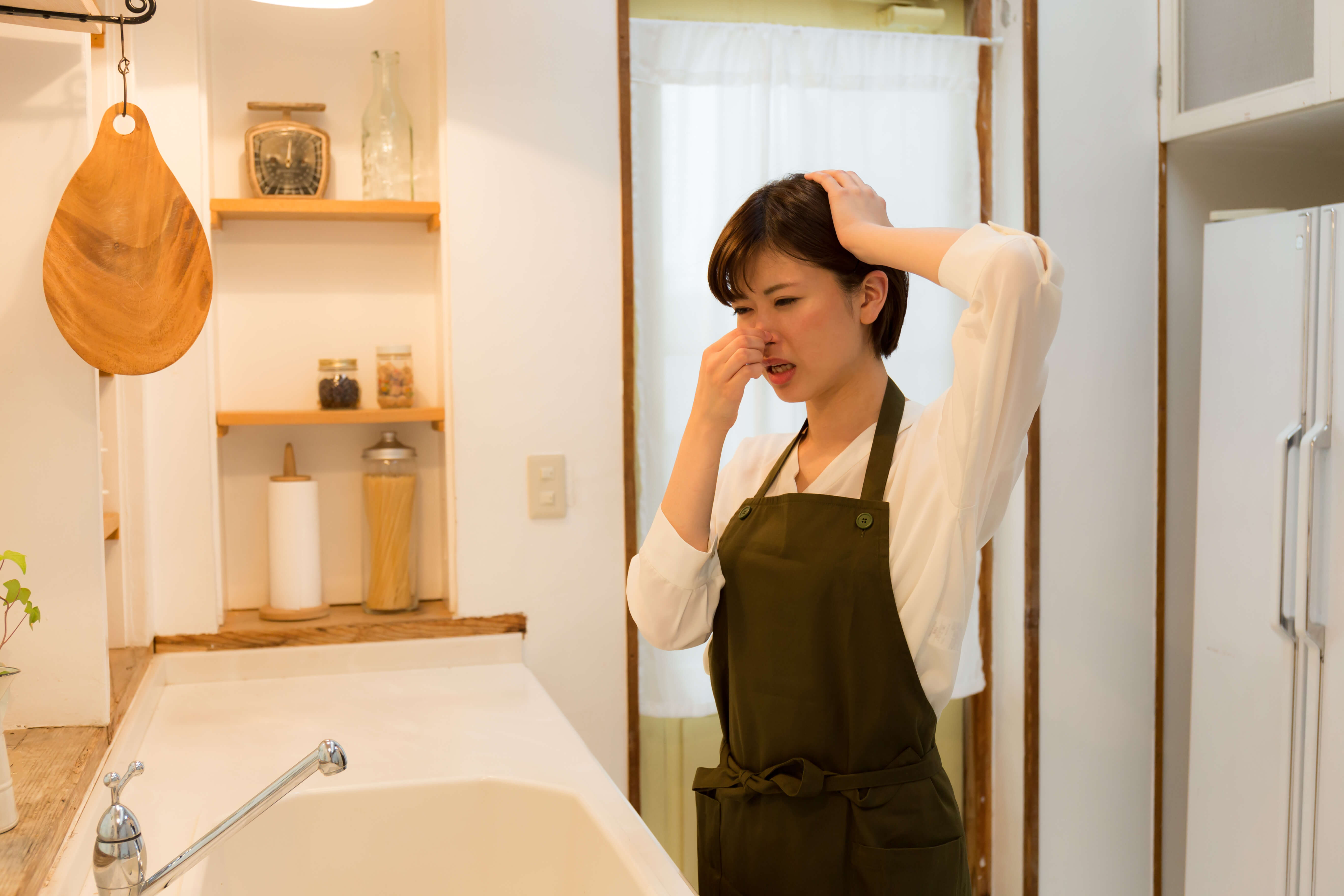
Musty and funky odors are another tell-tale sign that your basement has too much humidity. These odors are a result of bacterial and mold growth. When these issues are not addressed in time, they can spread all around the home, resulting in respiratory issues for you and your family and even structural damage. If this is the case, odors will begin adding up, resulting in an unpleasant smell.
Pro Tip: If the walls of your basement are discolored, then you probably have mold. A dehumidifier will help cut out moisture the mold spores require, so they don’t spread.
If your basement’s doors, windows, and floors are creaky
Creaky doors, windows, and floors are another sign that your basement has moisture. The creaky sound happens because the joints have absorbed too much moisture. This, in turn, causes the wood to expand, loosening screws, fasteners, and nails and could even compromise the frame. Your door or window joints might give out if they do not get repaired.
Pro Tip: Check your wooden doors, windows, frames, and flooring for any warping. This is a telltale sign of too much moisture in the air.
If you have a pest infestation in your basement
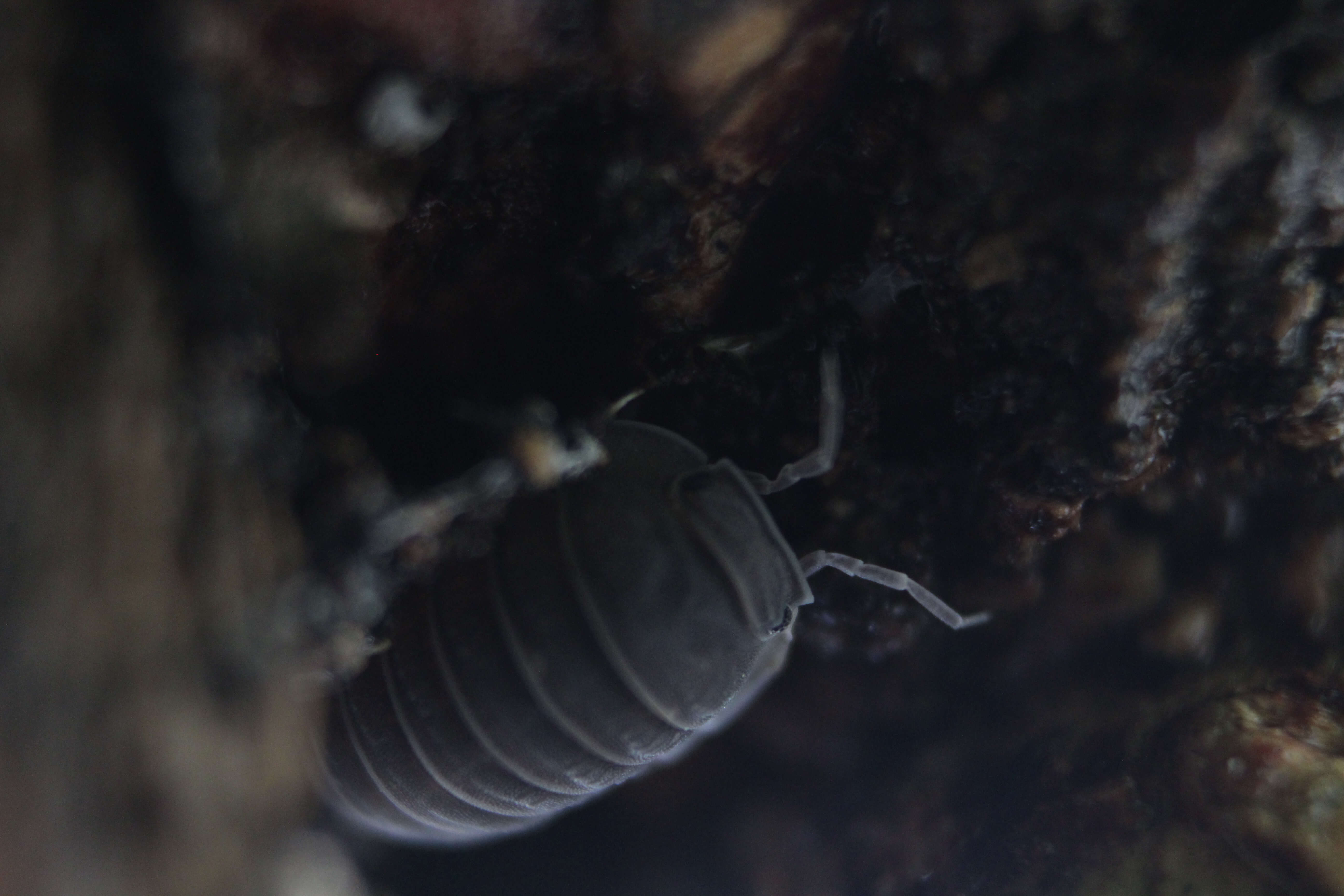
Nobody wants bugs and rodents scuttling around their basement. If you’ve noticed signs of pests, your basement has a hidden source of moisture. Just as with mold, pests thrive in moisture and darkness, two elements that basements often have. Once you finish taking measures to get rid of the pests, the next stage is to get rid of the moisture. Use a dehumidifier to ensure your basement is a less enticing environment for pests.
If your basement feels clammy
If the air in your basement feels cold or clammy, it could result from excessive humidity. Having a dehumidifier can help eliminate this issue; however, if the clammy feeling doesn’t appear to be going anywhere, you might have to check your pipes to see if a leak is causing the unending moisture. We have put together a list of the best dehumidifiers for basements if you decide you want to go down that path and want to avoid units that haven’t been proven to be effective.
We would also recommend using an air purifier to keep the air clean in a basement as many gasses and particles can build up and cause problems over time. If you are looking for the best air purifier for your basement, then be sure to check out our recently updated buying guide, which is based on house performance tests.



